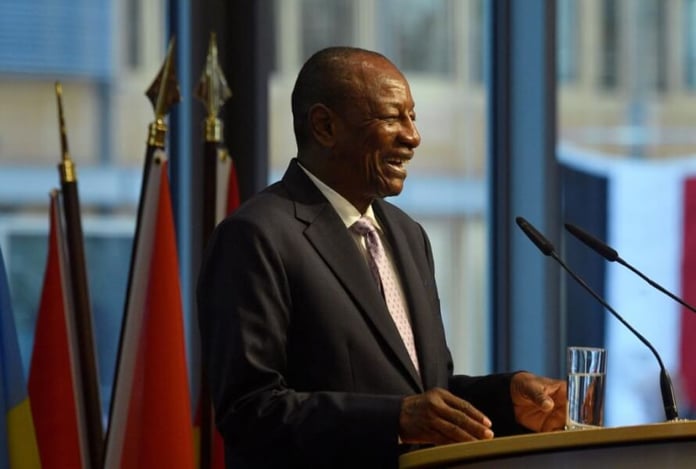On March 1st, voters in Guinea are to vote on a constitutional amendment. This could give President Conde the opportunity to run for the next election. The fear of violence is growing
President Conde was once a beacon of hopeBut to be able to run, the constitution has to be changed. This should be made possible by the referendum next Sunday. The ruling party is behind the plans. “The parliament of the [West African community of states] ECOWAS made a clear statement: Guinea is a sovereign state and, like every other nation, has the right to propose a new constitution to the people and to have it voted on,” said MP Alpha Bah Fischer of DW.
No room for compromise
“The situation is like a political blockade,” says Guinea expert Melly. “The opposition is against the referendum and against the third term of office for the president, who in turn is unwilling to compromise. This has created a climate of deep mistrust.”
The opposition wants the vote on March 1st. boycott. “Many Guineans believe that the opposition is too narrow-minded and too focused on internal power struggles instead of preventing Conde from serving for a third term,” Melly said. This also means: “It will be difficult for the international community to put pressure on the government if the opposition moves away from the political stage.” His bitter conclusion: With his boycott tactics, the opposition shoots itself in the knee.
Again and again, there are protests against the planned referendumCriticism of the vote also comes from another side: Due to the current situation, the International Organization of Francophonie (OIF) has decided to no longer support the conduct of the referendum and the parliamentary elections. According to the OIF, more than two million names on the electoral lists are “problematic”: there are names of the dead, other people are listed several times.
The opposition has made similar allegations. According to them, almost three million additional people have been added to the current electoral roll. “In less than five years, the number of voters in Guinea has increased by three million. The electoral roll has been manipulated,” writes Tierno Monenembo in a DW interview. “All strongholds favorable to power are oversized. Kankan is now more populous than Conakry, the country’s capital.”
Minors on the electoral roll?
Minors were also registered as voters, says Amadou Oury Souare, a resident of Kankan. “Children under the age of 18 have been identified. These children go to their constituencies to collect their election notifications. There are also cases of deceased people who are still on the election lists,” he said in a DW interview. The FNDC opposition coalition has made similar allegations. Regions that are considered classic opposition strongholds were excluded from voter registration.
The ruling party rejects these allegations. “Perhaps there are shortcomings in the electoral register, but no shortcomings that could distort the upcoming elections,” said Alpha Bah Fischer of the governing party RPG.
From the critics’ point of view, the current development is stifling the democratic awakening in Guinea. “As the tension before the referendum on March 1 increases, so does the risk that the security forces will crackdown,” warns Corinne Dufka, West Africa director of the human rights organization Human Rights Watch. Her demand: The Guinean government must ensure those police officers are cautious and disciplined when monitoring opposition protests.


